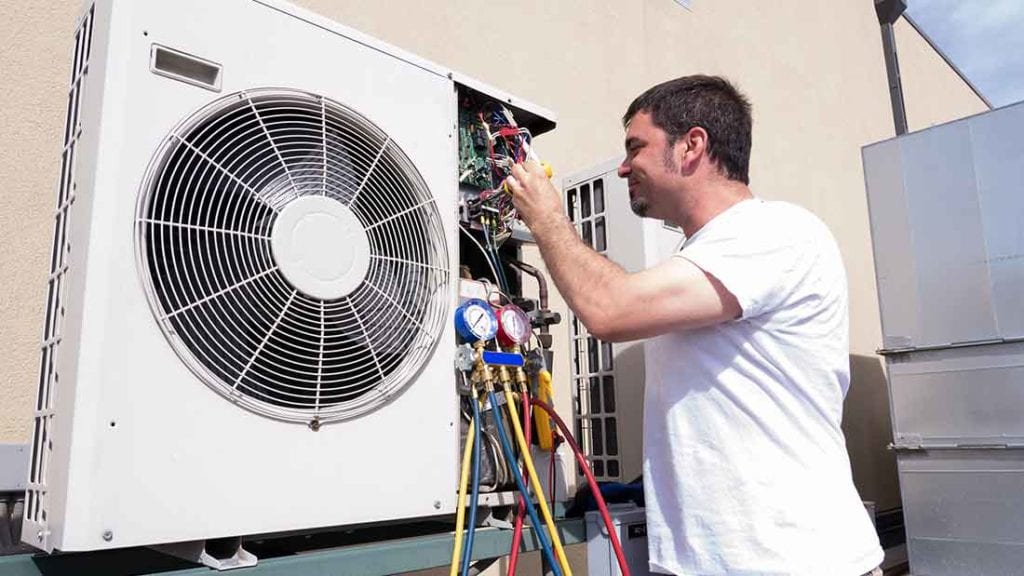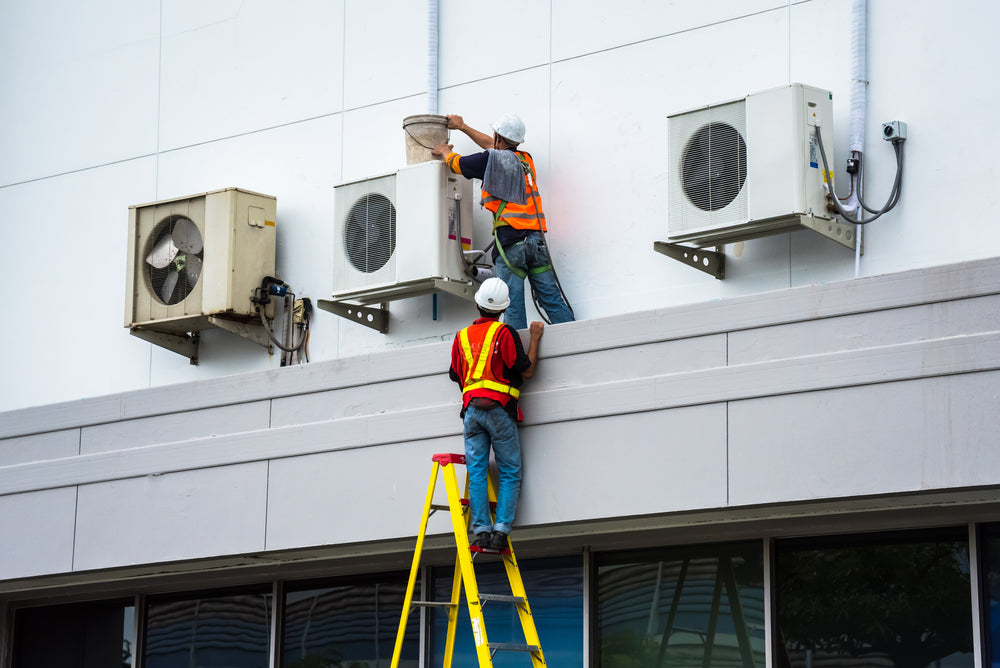Just How Air Conditioning Improves Comfort and Air High Quality in Your Home
The combination of air conditioning systems in household settings plays an essential duty in improving both convenience and air top quality. By properly managing temperature level and humidity, these systems create an environment for well-being, which is specifically vital in today's significantly contaminated ambience. Moreover, contemporary cooling systems are equipped with innovative filtering modern technologies that can substantially reduce air-borne contaminants. Nonetheless, the effects of air conditioning prolong beyond mere convenience; they discuss energy performance and total health and wellness. What other aspects should be taken into consideration when reviewing real impact of air conditioning on our living areas?
Advantages of Air Conditioning
Air conditioning provides many advantages that extend beyond plain comfort, significantly enhancing interior environments. Among the primary advantages is boosted air top quality. A/c systems filter and circulate indoor air, removing dust, allergens, and contaminants, thereby adding to a healthier space. This is particularly valuable for individuals with breathing issues or allergic reactions, as cleaner air can relieve signs and symptoms and advertise general health.
In addition, cooling plays a crucial function in moisture control. Extreme moisture can bring about mold development and architectural damages, while a/c systems assist preserve optimal moisture degrees. This not just shields home however likewise boosts convenience by reducing the clamminess commonly related to high moisture.
Power performance is one more vital advantage. Modern a/c devices are developed to run much more successfully than older versions, minimizing power intake and decreasing utility costs. Programmable thermostats enable individuals to optimize cooling down timetables, making sure that power is made use of deliberately.
Finally, a/c adds to enhanced performance. Air Conditioning Brisbane. In work environments, a controlled climate can enhance focus and performance, highlighting the value of a/c in both property and commercial settings
Exactly How A/c Improves Comfort
Improved comfort in indoor environments is one of one of the most significant benefits given by cooling systems. These systems successfully regulate indoor temperatures, ensuring a continually enjoyable ambience despite outside climate problems. By maintaining a steady temperature level, cooling allows passengers to take part in daily activities without the discomfort usually brought on by too much warmth or humidity.
Additionally, a/c systems add to boosted rest quality. A cooler environment is favorable to much better sleep, as it helps lower the body's core temperature level, signaling that it is time to remainder. This is particularly essential throughout the warmer months when heats can interfere with rest patterns.
Additionally, modern air conditioning systems commonly come geared up with programmable thermostats, allowing customers to tailor their convenience levels according to individual choices and schedules - Air Conditioning Brisbane. This versatility not only improves comfort however additionally advertises power effectiveness, as systems can be readied to operate only when needed

Enhancing Indoor Air Quality
A substantial benefit of cooling systems is their capability to boost indoor air top quality. By distributing and filtering system air, these systems remove air-borne pollutants, irritants, and contaminants, leading to see this a much healthier living environment. High-efficiency particle air (HEPA) filters, commonly utilized in modern-day air conditioning systems, effectively capture dust, plant pollen, mold and mildew spores, and animal dander, therefore decreasing the existence of toxic irritants that can intensify respiratory system issues and allergies.
Additionally, cooling systems can help alleviate the results of outdoor pollution. By preserving a shut interior environment, they limit the influx of outside irritants and particle matter. This is particularly useful for people with bronchial asthma or various other respiratory conditions, as enhanced air high quality can add to far better wellness outcomes.
Additionally, some advanced a/c designs come furnished with ultraviolet (UV) light modern technology, which better detoxifies the air by neutralizing bacteria and viruses. Regular maintenance of these systems, consisting of filter substitute and cleansing, is essential to ensure optimal performance and air quality. Overall, the role of air conditioning in boosting interior air top quality can not be overemphasized, making it a vital component of contemporary home convenience.
Taking Care Of Humidity Degrees
Effective administration of moisture levels is important for preserving a comfortable and healthy interior atmosphere. High humidity can lead to pain, advertising a feeling of stickiness and making it difficult for the body to manage its temperature level. This condition can also develop an excellent breeding place for mold, dust mites, and various other irritants, ultimately impacting interior air high quality.
Air conditioning systems play a substantial function in regulating moisture. By cooling the air, they additionally dehumidify it, extracting excess wetness as the air passes over cool evaporator coils. This procedure not just boosts comfort yet additionally reduces the threats connected with high moisture. Ideally, indoor humidity degrees need to be maintained in between 30% and 50% for ideal comfort and health.
Along with cooling, making use of dehumidifiers can further help in handling moisture levels, particularly in locations vulnerable to excess moisture, such as cellars or shower rooms. Regular upkeep of air conditioning systems, including cleaning and changing filters, can improve their effectiveness in wetness control. By effectively taking care of humidity, home owners can create a more enjoyable living room while minimizing health and wellness dangers connected with inadequate indoor air quality.
Power Efficiency and Sustainability
Air conditioning systems' energy efficiency is progressively crucial in today's ecologically aware society. As homes look for to reduce their carbon impacts, the demand for energy-efficient a/c devices has actually surged. These systems are developed to use much less power while maintaining optimal interior comfort, thereby decreasing energy bills and lessening environmental see post effect.
Technological advancements have actually caused the growth of high-efficiency versions that utilize environmentally friendly cooling agents and advanced warm exchange processes - Air Conditioning Brisbane. Equipments with higher Seasonal Energy Efficiency Ratios (SEER) and Energy Effectiveness Ratios (EER) not only execute far better however likewise contribute to a lasting future by minimizing greenhouse gas exhausts
In addition, incorporating smart modern technology into cooling systems permits even more exact temperature control and power administration. Homeowners can adjust settings remotely, allowing them to optimize power usage and minimize waste.
Additionally, normal maintenance and proper setup are essential for making sure that cooling devices operate at peak effectiveness. This commitment to energy performance not only improves the longevity of the system yet additionally straightens with broader sustainability objectives, eventually profiting both the specific homeowner and the environment.
Final Thought
